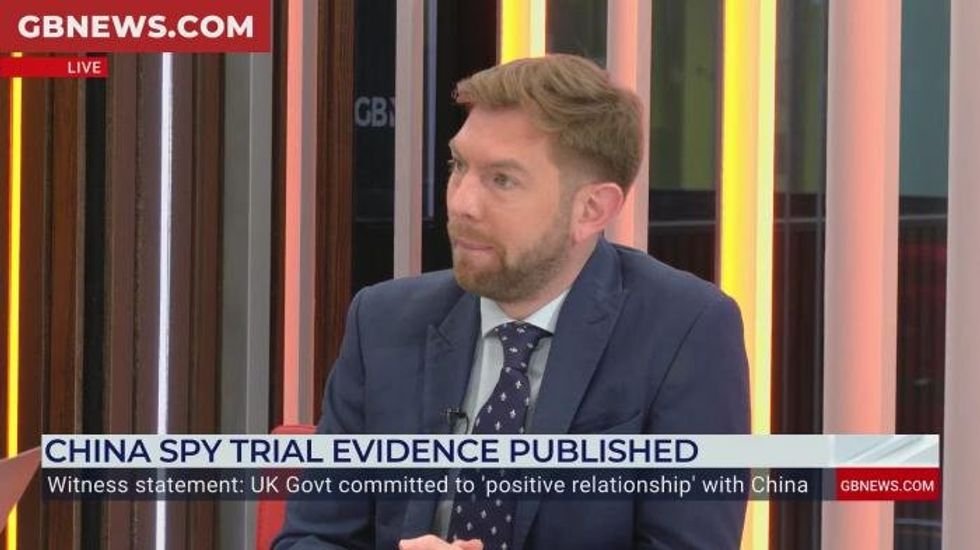
Looming changes to inheritance tax (IHT) rules affecting pension savings from Chancellor Rachel Reeves have been slammed as a “total disaster” for millions of households across Britian.The Chancellor confronts intensifying opposition to her proposed reforms affecting retirement funds, with former pensions minister Baroness Altmann delivering a stark assessment of the plans’ potential impact.The Conservative peer branded the inheritance tax proposals for unused pension funds a “total disaster” that would devastate future retirement provision.Meanwhile, the Chancellor has indicated that tax increases are under consideration, stating this week: “Of course, we’re looking at tax and spending.”The Chancellor’s inheritance tax policies are coming under fire | GETTY She suggested that affluent individuals should bear greater responsibility for funding public services, declaring that those with the “broadest shoulders” should pay their share.Baroness Altmann cautioned that the inheritance tax measures would prompt retirees to withdraw pension funds hastily, particularly amounts up to the £50,270 higher rate income tax threshold.She predicted reduced pension contributions and “millions more poorer future pensioners” as a consequence of the policy.The peer proposed an alternative approach involving a special tax on unused pensions at a rate substantially below the standard 40% inheritance tax charge.Experts continue to express concerns about the administrative challenges families will face when dealing with pension inheritance tax. | GETTY She also cautioned that the Chancellor might introduce additional levies affecting retirees, including increased taxes on pension withdrawals or retirement savings contributions.National Insurance charges on pension income represented another possibility, which Baroness Altmann noted could “raise billions, but would hit millions of ordinary pensioners”.Additional concerns have emerged regarding pension taxation, with Sir Steve Webb, another former pensions minister, alerting that over four million individuals could face income tax on their state pension for the first time by 2027.The state pension is projected to increase by approximately 4.8 per cent next April, which would push the full new state pension above the £12,570 income tax threshold.A House of Lords inquiry scheduled for Monday will examine the implications of taxing unused pension pots, with experts including representatives from the Law Society of England and Wales providing evidence.Ms Reeves defended her approach to fiscal policy in an interview with CNBC, emphasising that individuals who make Britain their home “should pay their tax there” and that “people do need to pay their fair share of tax.”The Chancellor acknowledged being “mindful of the impact of any policy on behaviours” whilst maintaining her commitment to fiscal discipline. She pledged to “balance day-to-day spending with tax receipts” and “bring debt down as a share of GDP,” noting that “the deficit has been running too high for the last few years.”LATEST DEVELOPMENTS:Average Inheritance tax paid by region | CHATGPT/ONSHow will pensions be affected by the changes to inheritance tax?Most unused pension funds and death benefits from pension schemes will be brought into your “estate” for IHT purposes. That means, when you die, those pension amounts may face the standard 40 per cent IHT (on amounts above the nil-rate band) just like your house, savings, etc. Currently, many pension pots escape IHT entirely — especially in defined contribution schemes, where leftover funds are not included in the deceased’s estate. Death in service benefits, such as lump sums paid because someone died while employed, from registered pension schemes will remain outside the IHT regime. The Government initially proposed that pension scheme administrators would be responsible for reporting and paying IHT on pensions, but following consultation they have switched course: personal representatives (i.e. executors of the estate) will instead have that duty, and beneficiaries will be jointly liable. Lump sum death benefits, unless excluded (e.g. to spouse, charity), will generally fall into the IHT calculation. The existing exemptions that apply (e.g. transfers to spouse, civil partner, charity) will still apply.